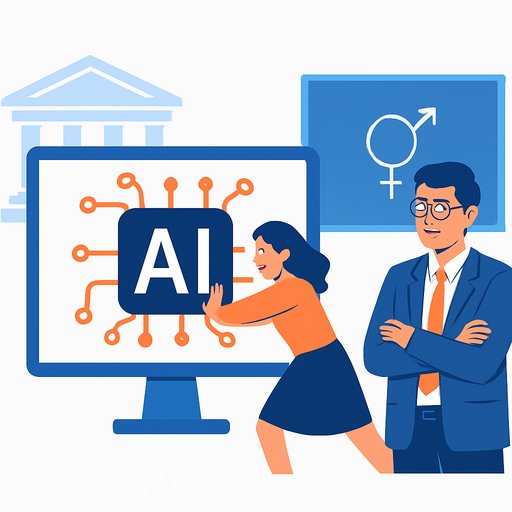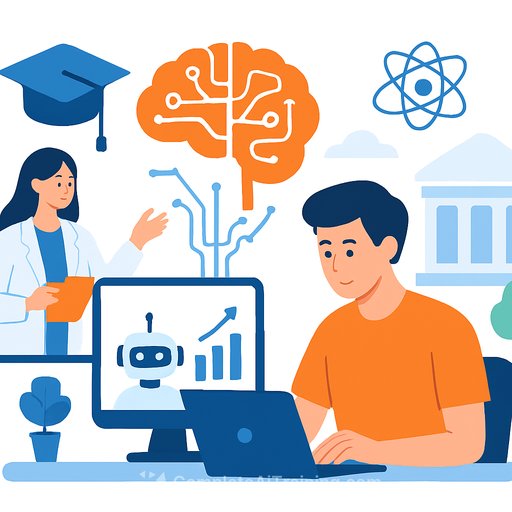Newfoundland and Labrador's Flagship Education Report Faces Credibility Crisis Over Suspected AI-Generated Citations
Newfoundland and Labrador's 418-page education reform report is under scrutiny after researchers found at least 15 fabricated citations. The document, released August 28 and intended to guide a decade of policy, promotes "ethical" AI use-while appearing to include references likely produced by AI.
CBC News reported the findings after experts failed to locate multiple sources cited in the report. Co-chairs Anne Burke and Karen Goodnough presented the plan alongside Education Minister Bernard Davis; none anticipated the fallout.
The Smoking Gun
One reference cites a 2008 National Film Board movie titled "Schoolyard Games." The film doesn't exist, according to the board. Researcher Aaron Tucker traced the citation to a University of Victoria style guide that uses intentionally fictional entries as formatting examples-clearly labeled as such on page one.
Tucker and others searched university libraries, databases, and Google with no results for several cited works. He noted that fabricating sources is a common failure mode of generative AI, though he stopped short of declaring AI use definitively.
Why AI Makes Up Citations
- Language models generate text that looks plausible based on patterns, not verified facts.
- They often produce realistic-looking citations that don't exist or misrepresent real sources.
- Even models with web access can cite inappropriately or fabricate details if retrieval fails.
The Awkward Contradiction
The report itself recommends giving students and educators core AI knowledge: ethics, data privacy, and responsible use. Political science professor Sarah Martin spent days checking references and found multiple entries she could not verify, calling the situation hard to explain without AI involvement.
Former faculty association president Josh Lepawsky resigned from the advisory board earlier this year over process concerns. He distinguished normal errors from fictional references, arguing that made-up citations undermine trust in the whole document.
Official Response
Co-chair Karen Goodnough declined interviews, saying the team is "investigating and checking references." The Department of Education acknowledged a "small number of potential errors in citations" and promised online updates to fix issues.
Beyond this report, the incident raises a larger question: if a government plan advocating responsible AI use contains suspected AI fabrications, how should schools set standards for academic integrity and AI?
What Educators Should Do Now
- Adopt a zero-trust policy for citations in strategic documents and major assignments; verify every reference before publication.
- Require persistent identifiers (DOIs), direct links, and page numbers for all citations. No unverifiable sources.
- Implement a citation audit workflow: random spot checks for smaller outputs; full audits for flagship reports.
- Mandate disclosure of AI assistance: who used it, for what, and how outputs were verified.
- Teach AI failure modes-hallucinations, citation fabrication, and source misattribution-in teacher PD and student curricula.
- Use retrieval-augmented tools that surface sources inline, then manually confirm each source says what the text claims.
- Set consequences for unverifiable references in policy documents and coursework.
Policy and Process Updates Worth Considering
- Create a short, plain-language AI use policy for reports: allowed use cases, verification steps, and sign-off responsibilities.
- Build a shared "approved sources" list for district reports and capstone projects.
- Log all citations in a shared database or spreadsheet with status (found, verified, quoted accurately).
- Train staff on prompt-writing for research support and on verification techniques to prevent overreliance on AI outputs.
Why This Matters for Schools
Trust is the currency of public education. If cornerstone documents cite fiction, every future recommendation gets questioned. Getting rigorous about sourcing is not optional-it's the baseline for credible work in the AI era.
Resources
- CBC News: Report on the suspected AI-generated citations
- AI courses by job role for schools and districts (Complete AI Training)
Your membership also unlocks:






